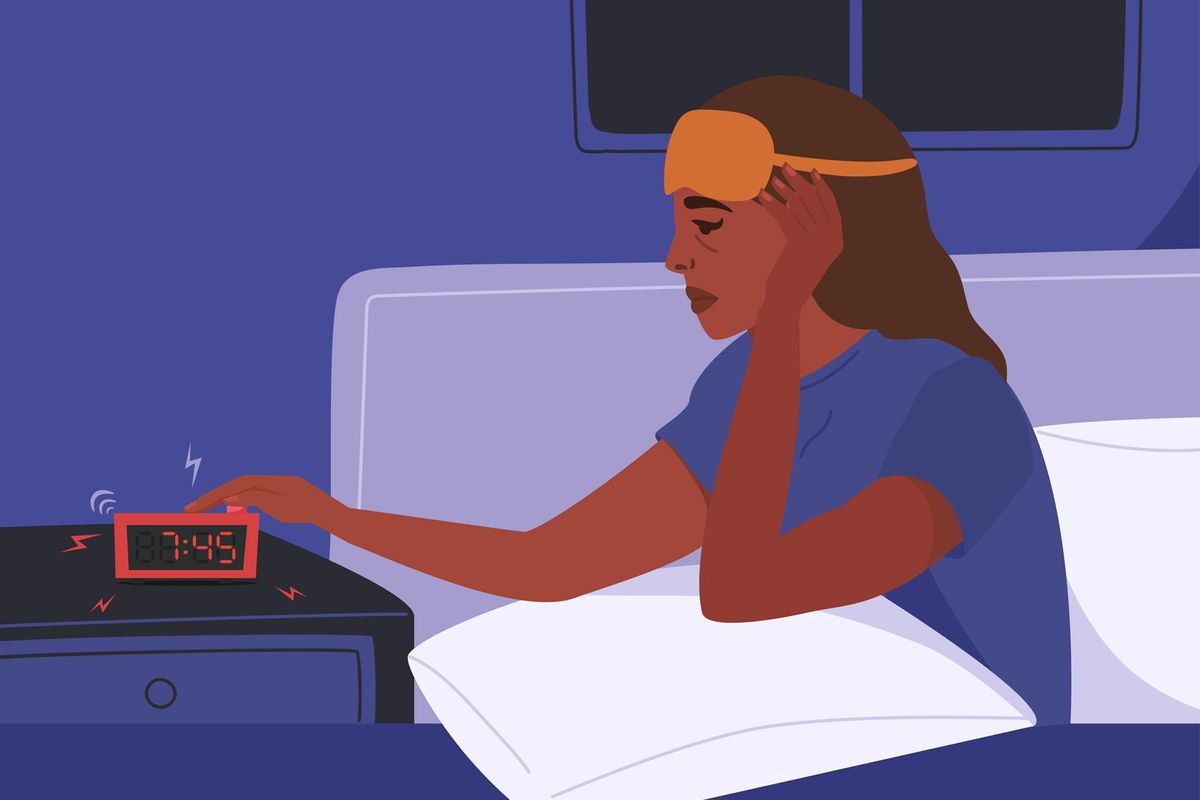7:45 a.m.
You finally haul yourself out of bed after hitting snooze too many times. Insomnia struck and you couldn’t sleep last night. Now you’re running late.
Sleep Tip: As tempting as it may be to sleep in after a rough night’s rest, getting up at the same time every day can reduce your risk of insomnia. Sleep experts suggest a regular wake-up time that doesn’t vary by more than an hour, even on the weekend.
10:15 a.m.
You’re having a hard time concentrating on your work, so you stumble to the break room for some coffee — and can’t resist grabbing a donut from the box on the counter.
Sleep Tip: Lack of sleep can increase your cravings for carb-heavy comfort foods. Keep a stash of almonds or other fiber-rich snacks in your desk drawer. A high-fiber diet may help prevent insomnia.
12:30 p.m.
Normally you enjoy chatting with your coworkers over lunch, but your social anxiety is spiking today. You put your earbuds in and eat at your desk.
Sleep Tip: Insomnia can worsen mental health problems like anxiety and depression. Try a deep breathing exercise, which can ease your anxiety and, when done at bedtime, help you fall asleep.
3:00 p.m.
You’re definitely going to fall asleep at your desk if you don’t get up and move around.
Sleep Tip: Take an afternoon walk around the block. Fresh air and exercise are key to a good night's sleep. If you can’t go outside, get up and walk around inside for a few minutes.
5:00 p.m.
You’re supposed to meet friends after work, but you’re way too tired. You feel guilty, because it’s not the first time your insomnia has forced you to bail on plans.
Sleep Tip: If insomnia is taking a toll on your social life, try having an honest conversation with your loved ones about your sleep struggles. Chances are they’ll be supportive, and sharing may ease some of the relationship-related guilt keeping you up at night.
10:00 p.m.
Bedtime! Even though you’re exhausted, you can’t help worrying that insomnia will strike again tonight.
Sleep Tip: Learn to replace negative thoughts about sleep (“I'll never get to sleep tonight.”) with positive ones ("If I relax peacefully in bed, my body will take care of itself.”).
If you struggle with insomnia, talk to your healthcare provider about any other tips that might help you fall asleep and stay asleep — and ask whether medicine is a good option for you.
This resource was created with support from Eisai.
- Treatment Options for Insomnia ›
- Better Sleep, Better Health: A Guide to Understanding Insomnia ›
- Top Sleep Stealers and How to Combat Them ›
- Is Menopause Playing Havoc With Your Sleep? ›
- Top 8 Healthy Sleep Habits ›
- How to Get a Good Night’s Sleep - HealthyWomen ›








